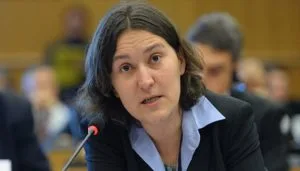Rome – Brexit has always been synonymous of uncertainty. And it still is, with negotiations now running out of time. Even in case of a last-minute deal, there will be no happy-ending. In fact, whatever it happens, EU-UK relations will remain full of uneasiness after the divorce. This is what was underlined during “The future of the EU-UK relationship”, the public event hosted by the European Policy Centre (EPC) in the framework of the EUIDEA project led by Istituto Affari internazionali (IAI), with the participation of Eunews as media partner.
Funded by the European Commission under the Horizon2020 program, EUIDEA addresses European integration and differentiation in order to find viable solutions to the current challenges that the EU is facing. No doubt that Brexit has been one, unprecedented, challenges so far. EU IDEA decided to set up a special observatory, coordinated by the EPC, to better analyze the process and its implications.
The first of Brexit implications is that “as of the 1 st of January, 2021, the United Kingdom won’t benefit anymore from the EU membership”, stressed Stefaan De Rynck, Head of Unit for the Task Force for Relations with the United Kingdom of the European Commission. This will bring major consequences even in case of a deal on future relations.
This is true also for the EU and its member States. In practice, just to make an example, broadcasting companies willing to transmit in the UK will have to be based there. No doubt the Brexit will be a disruptive moment, very difficult to be stopped even in case of an agreement on the future relations.
“If we take the Netherlands alone, there will be 17,000 job losses with a deal, rising up to 70,000

in case of a no-deal”, denounced Kati Piri (S&D), Member of the UK Coordination Group at the European Parliament. So, whatever happens, there is the need of be prepared. “We still have contingency measures to be legislated, even in the European Parliament, before the end of the year”.
The European Parliament is ready to move forward in any case, the MEP told the audience. “We are extremely flexible in order to have a deal approved by the end of the year”, she stressed. That means that within the EU institution “we are willing to work in Christmas, holding an extraordinary Plenary session”, if the case requires.
But this is not the case, according to Fabian Zuleeg, Chief Executive of the EPC. “I remain pessimistic”, he confessed. Given the short time at disposal, the likelihood of “a no-deal by accident remains very high” as the final outcome of the ongoing negotiations. There are, in fact, still too many key issues on the table. Fishery is one of them. Without a deal on fishery there will be no agreement whatsoever. Moreover, there are the internal market bill and the finance bill, with the “UK’s intention to introduce these legislation, breaking the international law” and which are highly disruptive for EU’s trust in the British partner. “I see very difficult to come back to the negotiating table after this initiative”, Zuleeg added. “EU at a certain point must say that ‘enough is enough’”, he continued. “We cannot keep negotiating with who wants to blackmail or bring the agreements”.
Uncertainty, running out of time, negative implications even in case of a deal. The present of the UE-UK relations seems to be already set. But there still missing elements for the time to come. “If we look at the purpose of Brexit, the purpose is sovereignty”, recalled Sir Ivan Rogers, former Permanent Representative of the United Kingdom to the European Union. “The point is: there are different meanings of sovereignty”, and so far it doesn’t seem to be clear at all how the British want to use their ‘freedom’ once out of the EU.
Here comes the real problem of the future ties between the UKn and the mainland: how the UK will act. “The EU doesn’t contest the sovereignty claim of the UK”, made clear De Rynck. “The point is to see what this sovereignty is used for”. Apparently, nobody knows.


![[foto: imagoeconomica]](https://www.eunews.it/wp-content/uploads/2025/01/Imagoeconomica_1020043-350x250.jpg)








